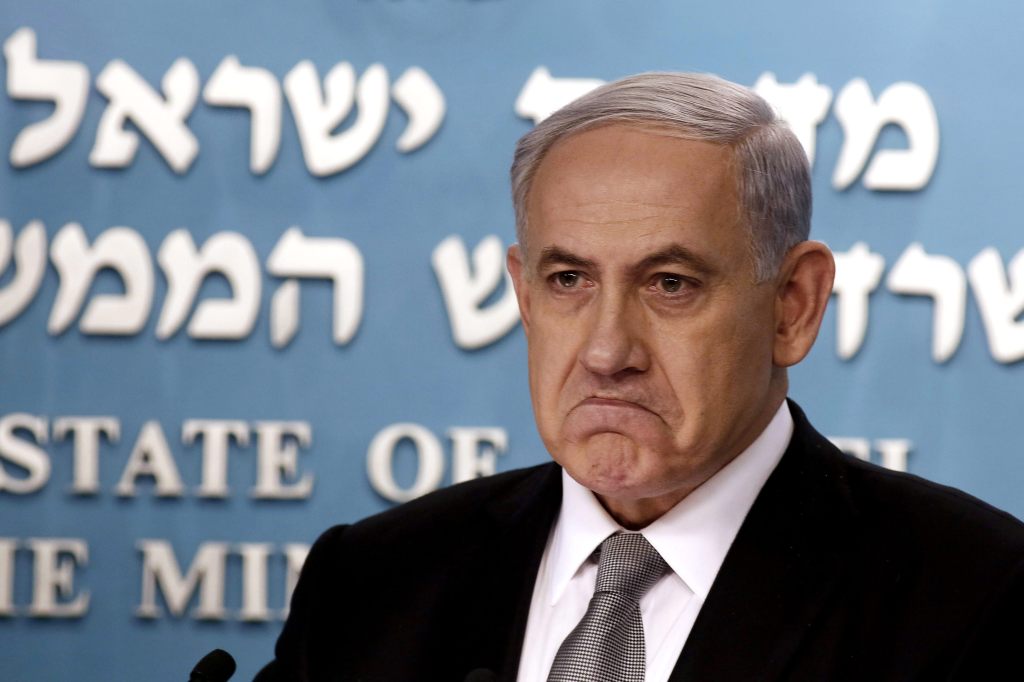Next coalition likely to be less centrist amid battle over controversial Jewish nation state law
When Benjamin Netanyahu announced the sackings of two key centrist ministers and his desire to call early elections, there weren’t many surprised faces around Jerusalem. Israeli governments are often unstable; no one party has ever won a majority in a national election meaning coalitions are the norm. As a result, most administrations do not see out a full term.
The rapid decline of the current government however has raised questions over the likely make-up of its successor. Parties now need to find potential allies once again.
The two ministers dismissed yesterday, Yair Lapid and Tzipi Livni, and their parties (Yesh Atid and Hatnuah respectively) will obviously not be first on the PM’s call list. Although there were plenty of disagreements, many of them domestic, the most recent high-profile one — a controversial proposed law that sought to enshrine Israel’s Jewish character in law — has been cited by analysts as a tack to the right.
Critics have attacked the law as anti-democratic and discriminatory, saying it would compromise the rights of Israeli Arabs, who make up around a fifth of the population. Netanyahu’s Likud Party says the bill — “Israel as the Nation State of the Jewish People” — is a necessity to ensure the nation’s identity is protected, though it implied it would be watered down before a vote.
Six Cabinet ministers voted against that bill, including Livni and Lapid, exacerbating pre-existing divisions in the government. They weren’t the only ones unhappy; the US State Department and Israel’s President Reuven Rivlin, a Likud member, also expressed concerns.
But many local newspapers suggested yesterday that personal emnity between Lapid, who fronts Israel’s second-biggest party, and Netanyahu was the prime cause of the break-up, suggesting many of their political differences could have been sorted out relatively easily.
Offering an explanation, The Jewish Post said that Israel’s leader had manufactured, or at least exaggerated, issues in order to force Lapid out, saying relations between the two politicians had “deteriorated… to the point where… they barely communicate.”
Next steps
So where does Israel go from here?
First of all, the move toward early elections, likely to take place in March, will have to be approved. According to reports yesterday, Netanyahu sought the backing of ultra-orthodox parties to support his move to dissolve Parliament, thereby denying rival parties the chance to form their own government.
The prime minister could even tap the ultra-orthodox groups to continue governing with a new coalition, but reports suggest this is very unlikely, with them favouring their chances in an election.
Early polls last night suggested that Netanyahu’s Likud Party would remain the most popular party, with a Channel 2 poll predicting it would take 22 of the 120 seats in Parliament. The far-right, pro-settlements party Jewish Home, currently in the coalition, followed behind on 17.
Likud Chairman Danny Danon hit out at Lapid yesterday and declared that “after Likud is victorious, we must be sure not to repeat mistakes of the past and form the next coalition government with loyal and like-minded parties.”
Analysts interpreted that, along with the controversial bill, as a move to the far-right, meaning Netanyahu won’t look to win the support of centrists, relying on Jewish Home and more orthodox groups.
One potential gamechanger however is ex-Likud minister Moshe Kahlon, who is launching his own party. A natural ally at first glance, polls have said he may win as many as 12 seats, meaning the party could replace Yesh Atid, which has 19 currently, in any future coalition.
A further complication to the electoral landscape is a new rule that raises the threshold — to 3.25 percent — for parties to be represented in Parliament, which is designated by proportional representation. This has implications for Israel’s Arab political parties, who desperately seek a voice in the Knesset. Three Arab parliamentary groups, United Arab List-Ta’al, Hadash, and Balad, met yesterday with a view to uniting and running together as a new bloc.
The threshold rule may also have another serious outcome for Livni’s Hatnuah party. Should its share of the vote drop, some pollsters have argued it may be vulnerable to missing the cut — at the last election it took just 4.9 percent.
@urlgoeshere
Originally published in the Buenos Aires Herald, on Wednesday, December 3, 2014



